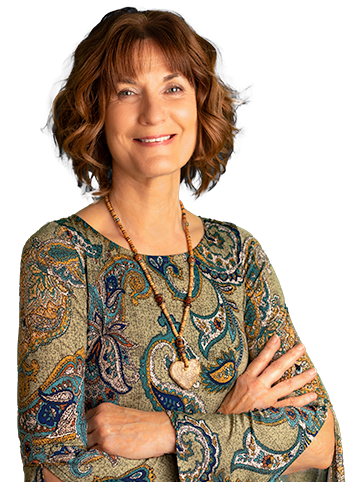What is Acupuncture, Integrative and Oriental Medicine?
The Best of All Worlds
What is Integrative Medicine?
A healing-oriented medicine that takes account of the whole person, including all aspects of lifestyle. It emphasizes the therapeutic relationship between practitioner and patient and makes use of all appropriate therapies; conventional, alternative and holistic.
IM seeks to restore and maintain health and wellness across a person’s lifespan by understanding the patient’s unique set of circumstances and addressing the full range of physical, emotional, mental, social, spiritual and environmental influences that affect health.
Through personalizing care, integrative medicine goes beyond the treatment of symptoms to address all the causes of an dis-eases. In doing so, the patient’s immediate health needs, as well as the effects of the long-term and complex interplay between biological, behavioral, psycho-social and environmental influences are taken into account.
What is Oriental Medicine?
Oriental Medicine is the oldest form of Integrative, Alternative and Complimentary medicines. OM (also known as Traditional Chinese Medicine (TCM), is a complete system of medicine throughout the world, with recorded instances dating as far back as 2,000 years. This is in sharp contrast to the American or Western forms of healthcare, which have been in existence for some 150 years. It is a medical system that has been used for thousands of years to prevent, diagnose, and treat dis-ease.
Oriental medicine is reinforced with science and anatomy to restore health by treating illness and dis-ease through the Five Major Branches of Oriental Medicine, which include:
- Acupuncture
- Chinese herbal medicine
- Nutrition and dietary therapy
- Oriental bodywork; cupping, gua sha, massage
- Qi gong/Meditation
What is Acupuncture? Acupuncture is the insertion of tiny needles in specific places to enhance a healthier mind and body. The insertion stimulates communication between your circulatory and nervous systems. It is a key therapy under the umbrella of Oriental medicine.
How Acupuncture Works – Transforming the MYTH
The original theory of Acupuncture taught in medical colleges was Qi (chi) meant energy and that this non- physical energy circulates through non-physical relied vessels in the body called meridians.
The explanation for the improvement via acupuncture is simply due to the patient’s energy is more balanced. This was the myth created through mistranslations my 3 authors of the ancient Chinese medical text, Huang Di Nei Jing in 1939.
FACT
There are four aspects of a body that need to be functioning well in order to be healthy.
- Qi (Oxygen) delivery to the tissues
- Vascular System
- Organ System
- Nervous System
An acupuncture point is a critical juncture where a plexus of arterioles, venules and nerve tissue are located above the main distribution vessels of the body. The sensation created by the needles “jumps” the neural signal threshold and stimulates the brain to release the body’s natural chemicals for pain relief and repair.
- Acupuncture helps to increase circulation/vascular function.
- Acupuncture delivers oxygenated and nutritious blood to the organ systems.
- Acupuncture creates a stimulation to re-boot the neural pathways.
The Oriental and Integrative Medicine Approach to Assessment
Practitioners are taught how to assess the patient’s fundamental clinical imbalances through careful history taking, physical examination, and laboratory testing. The Oriental and Integrative medicine practitioner will consider multiple factors, including:
- Environmental inputs –The air you breathe and the water you drink, the particular diet you eat, the quality of the food available to you, your level of physical exercise, and toxic exposures or traumas you have experienced all affect your health.
- Mind-body connections –Psychological, spiritual, and social factors all can have a profound influence on your health. Considering these areas helps the functional medicine practitioner see your health in the context of you as a whole person, not just your physical symptoms.
- Genetic makeup –Although individual genes may make you more susceptible to some diseases, your DNA is not an unchanging blueprint for your life. Emerging research shows that your genes may be influenced by everything in your environment, as well as your experiences, attitudes, and beliefs. That means it is possible to change the way genes are activated and expressed.
Through assessment of these underlying causes and triggers of dysfunction, the Integrative medicine practitioner is able to understand how key processes are affected. These are the body’s processes that keep you alive. Some occur at the cellular level and involve how cells function, repair, and maintain themselves. These processes are related to larger functions, such as:
- how your body rids itself of toxins
- regulation of hormones and
- neurotransmitters
- immune system function
- inflammatory responses
- digestion and absorption of nutrients and
- the health of the digestive tract
- structural integrity
- psychological and spiritual equilibrium
- how you produce energy
All of these processes are influenced by both environmental factors and your genetic make-up; when they are disturbed or imbalanced, they lead to symptoms, which can lead to disease if effective interventions are not applied.
A Comprehensive Approach to Treatment
Most imbalances in functionality can be addressed; some can be completely restored to optimum function, and others can be substantially improved.
- Prevention is paramount. Virtually every complex, chronic disease is preceded by long-term disturbances in functionality that can be identified and effectively managed.
- Changing how the systems function can have a major impact on the patient’s health. The Oriental medicine practitioner examines a wide array of available interventions and customizes a treatment plan including those with the most impact on underlying functionality.
- Oriental medicine has an expansive clinician tool kit. Treatments may include combinations of botanical medicines, nutritional supplements, therapeutic diets, or detoxification programs. They may also include counseling on lifestyle, exercise, or stress-management techniques.
- The patient becomes a partner. As a patient, you become an active partner with your Functional medicine practitioner. This allows you to really be in charge of improving your own health and changing the outcome of disease.


